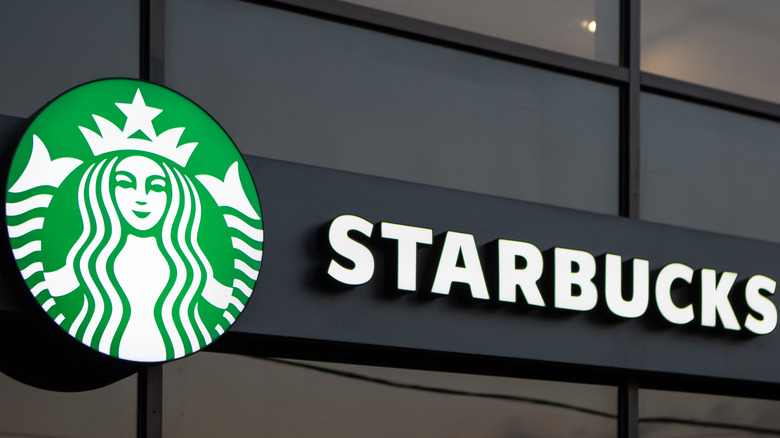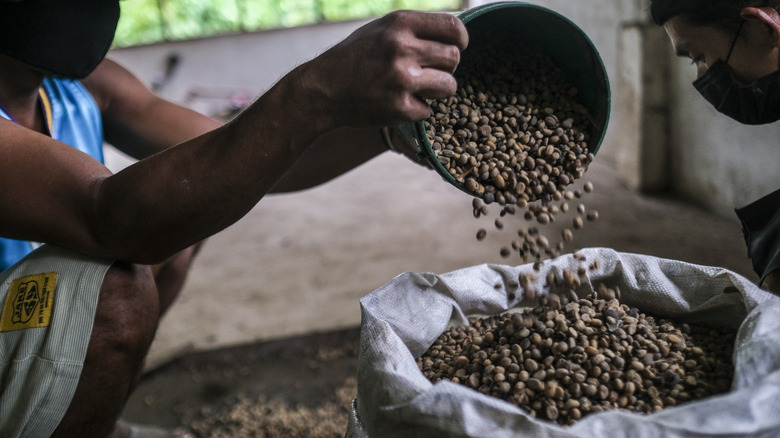The Dark Truth Behind Starbucks' Coffee Plantations
Society continues to become increasingly aware of issues taking place outside of its bubbled comfort zone. As ceaseless social media campaigns graphically explain the wild number of apparent injustices taking place across the globe, corporations, in particular, are being pressed to take on more responsibility to encourage change.
A major player in the business industry is Starbucks, which showed its supremacy by posting annual revenue expectations of up to $29.3 billion (via CNBC). With so much money swishing around the company's bank accounts, you'd have thought that Starbucks would be able to look after workers in its supply chain with ease. Not so, according to reports.
The global coffee chain that gifts populations with convenient caffeine boosts has been far from generous when tasked with looking after workers employed by coffee bean plantations that have provided the conglomerate with the essential ingredient. In 2020, The Guardian reported alarming findings from an investigation that unearthed systemic labor abuses at the coffee farms.
Slave labor has been linked to several plantations that have supplied Starbucks
The revelations released by The Guardian detailed how five coffee farms in the Starbucks supply chain had been found to employ children under the age of 13 to work incredibly hard 40-hour weeks picking coffee beans. Starbucks responded on its website by pledging "zero tolerance" to child labor, claiming the farms had not recently been used by the firm. It also committed to more independent inspections of coffee plantations and support to workers.
A previous investigation documented by Mongabay found slave labor was present at another coffee plantation linked to Starbucks (although the company again stated it had not recently purchased coffee from it). Dire working conditions were discovered despite the farm being accredited with a C.A.F.E Practices certification, which Starbucks' website confirms is a scheme it runs aimed at "protecting the well-being of coffee farmers and workers."
Although Starbucks features heavily in the slavery and child labor reports, it is not the only coffee chain that has been associated with harsh working conditions on plantations. Reuters notes that coffee companies Nespresso and Brazil-based Nucoffee have also been rocked by labor exploitation concerns.

